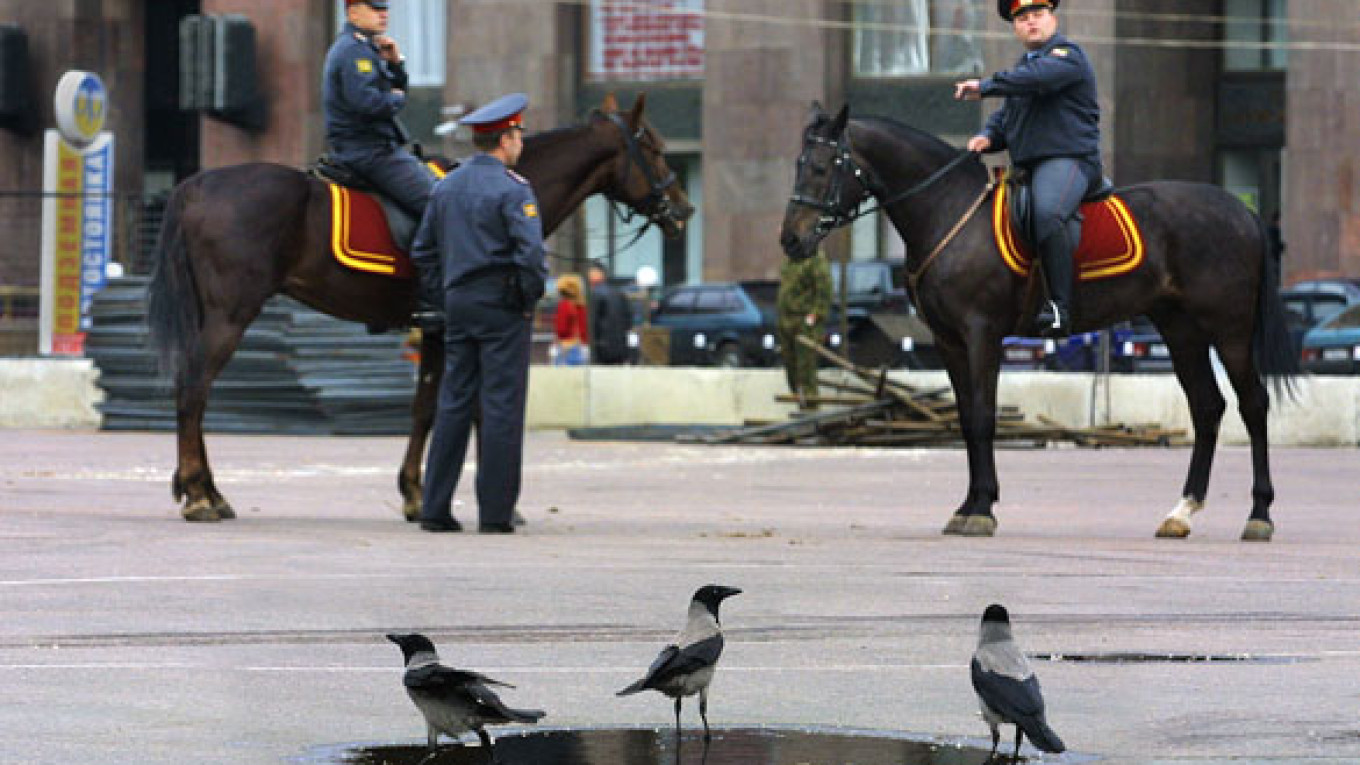The size of the average bribe has surged by a third as the government's war on corruption faltered this year, Prosecutor General Yury Chaika said Wednesday.
Chaika berated senior officials involved in the graft fight, saying their investigators were afflicted by complacency and were failing to build solid cases to prosecute officials suspected of corruption.
"In 2008 and 2009, we saw a significant revival of work in this area, but the results of the activities of law enforcement agencies in the first half of this year confirm complacency and a decrease of effectiveness and quality of work,” Chaika said at a meeting of the heads of the law enforcement agencies.
The government has steadily increased the number of investigators targeting corruption, but the number of cases going to trial has stayed about the same, and the rate of acquittals in the first half of 2010 almost doubled compared with the same period last year, Chaika told the meeting, which was also attended by Kremlin chief of staff Alexander Naryshkin.
Prosecutors opened 2,482 corruption cases in the first six months of this year, down from 3,063 in the same period of 2009, according to a report circulated at the meeting.
Chaika said his own staff shared the blame for the slowdown. “The main reason for this lies in deficiencies at all stages of law enforcement — ineffective operational work, the poor quality of investigations and the absence of a stalwart position by prosecutors,” he said, Interfax reported.
The report circulated at the meeting cited Interior Ministry figures as saying the average bribe has risen to 30,500 rubles ($1,015), up from 23,100 rubles ($770) last year.
The findings deal a blow to President Dmitry Medvedev, who has made fighting corruption a hallmark of his presidency.
Naryshkin struck a more upbeat note at the meeting, praising a Medvedev order that requires civil servants to declare their income and some assets. He promised to expand the declarations.
“This year's income statement covers nearly all civil servants. Experience shows that presenting information about incomes is quite an effective preventative measure,” Naryshkin said, Interfax reported.
But officials face no penalties for not disclosing their incomes, and several senior politicians have refused to follow Medvedev's order. Also, critics say some who have provided income declarations offered false information.Anti-corruption watchdogs said Chaika's findings were unsurprising and welcomed his honesty.
“I'm glad that it's not only society that sees that real action against real corruption and real corrupt officials is not gaining momentum yet,” said Yelena Pamfilova, head of Transparency International's Russia office.
“I don't see any point in income declarations if we have no declarations of expenditures,” said Anatoly Golubev, who chairs the nongovernmental Committee to Fight Corruption.
Pamfilova, whose organization ranked Russia 146 out of 180 countries in its corruption perceptions index for 2009, said the increasing acquittal rates might be connected with a lack of protection for whistleblowers.
“You simply cannot go through the whole [prosecution] process based only on information. You need someone to testify in court, to provide some evidence,” she said by telephone. “But businesses are afraid to report [corrupt officials] because they fear it will be more difficult for them to operate, and citizens are afraid that they may be subject to retaliatory actions from the officials' colleagues.”
Investigators are also hobbled by ambiguity about just who they can go after. “To really get a grip on corruption you have to start to investigate and prosecute senior officials who are sometimes covering for lower level corruption. But that requires a real political signal and political will,” Pamfilova said. “At the moment, legislation is slightly confusing on how far law enforcement can go. Can they go against themselves? Can they go against their own colleagues — police people, top political people?”
A Message from The Moscow Times:
Dear readers,
We are facing unprecedented challenges. Russia's Prosecutor General's Office has designated The Moscow Times as an "undesirable" organization, criminalizing our work and putting our staff at risk of prosecution. This follows our earlier unjust labeling as a "foreign agent."
These actions are direct attempts to silence independent journalism in Russia. The authorities claim our work "discredits the decisions of the Russian leadership." We see things differently: we strive to provide accurate, unbiased reporting on Russia.
We, the journalists of The Moscow Times, refuse to be silenced. But to continue our work, we need your help.
Your support, no matter how small, makes a world of difference. If you can, please support us monthly starting from just $2. It's quick to set up, and every contribution makes a significant impact.
By supporting The Moscow Times, you're defending open, independent journalism in the face of repression. Thank you for standing with us.
Remind me later.


